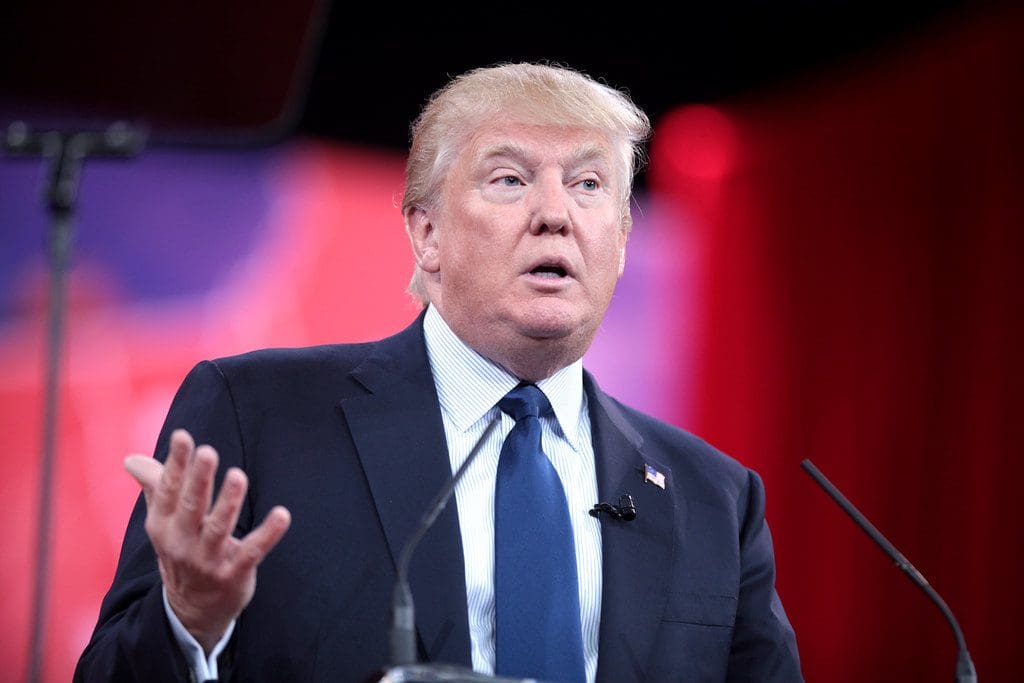Donald Trump’s victory in 2016 proved that populist conservatism has an audience in America. While prior Republican candidates and many opponents of Trump ran campaigns based on free-market economic principles, constitutional originalism, and interventionist foreign policy, Trump’s message of nationalism and “America first” economics and foreign policy proved to be the pitch that conservative voters wanted to hear following a disastrous eight years of President Obama.
Trump’s presidency, however, has been a disappointment for voters who were sold on those “America first” prospects. Two and a half years after his inauguration, “The Wall” remains a vague campaign goal with very little physical progress made as border crossings spike, and many perceive it took the influence of Fox News host Tucker Carlson to prevent a potential war with Iran.
The failures of President Trump in the cultural-political sphere also cannot be ignored. Concerns about Trump’s general moral character that were voiced during his 2016 campaign have perhaps been vindicated, as his lack of movement on several domestic issues facing social conservatives has been striking.
Trump has maintained strong support from the Evangelical Christian community throughout his presidency, yet the state of Christian politics exists largely outside his direct influence. The pro-life movement is visibly reaching new heights as more and more states are passing strong abortion restriction laws. One might be eager to give credit to Trump on this development, as it has been occurring under his watch. However, the explosion of pro-life advocacy has largely been in reaction to progressive politicians shifting their abortion stances from “safe, legal, and rare” to supporting abortion on demand as late as the third trimester of pregnancy, rather than being influenced by any direct action Trump has taken on the issue.
Furthermore, while many conservative writers and activists continue to decry the exponential spread and promotion of LGBT lifestyles, especially when pertaining to children (such as the recent “Drag Queen Story Time” fiasco that has spread nationwide), Trump has remained mute on this growing social crisis.
In fact, Trump has reacted somewhat indifferently to what is perhaps the biggest domestic crisis affecting conservatives: censorship on social media. What first started as direct targeting of “radical” right-wing personalities such as conspiracy theorist Alex Jones and shock-jock Milo Yiannopoulos has now spread down the line to journalists such as Paul Joseph Watson and comedian Steven Crowder. Yet the president has done little more than pledge to “monitor” the situation as the list of conservatives “unpersoned” by tech giants slowly grows.
The president’s most committed followers are being targeted by Silicon Valley, while drag queens are speaking to young and impressionable children in public libraries, Christian business owners are still being attacked by left-wing provocateurs seeking a payout, and the abortion lobby grows more radical by the day. Yet he would rather tweet platitudes about our economy or his many personal vendettas.
This commentary is not intended to be a Bulwark-esque, self-aggrandizing “Never Trump” rant—far from it, in fact. I, like tens of millions of conservatives nationwide, was intrigued by Trump’s populist rhetoric. Although I still consider myself a supporter of our president and do not regret voting for him in 2016, I must acknowledge that certain aspects of his presidency have been disappointing.
I am not giving up on Trump—yet. Certain actions of his, such as nominating record-setting numbers of conservative judges nationwide and his oftentimes astounding diplomatic achievements, should be praised. However, it would be wrong to assert that the Trump presidency has gone off without a hitch thus far. As conservatives, we must hold our elected representatives accountable; that duty extends to local officials, state representatives, our representatives in Congress, and, yes, all the way up to our president. It is not unpatriotic to point out that Trump has been lacking in effort in several key policy areas.
Conservatives need politicians that will not cede the culture war to the secular, progressive left and play on their terms and use their definitions. Conservatives need politicians that will emphatically and passionately fight the abortion lobby at every turn. Conservatives need politicians that will directly address the growing humanitarian crisis at our rapidly deteriorating southern border that endangers men, women, and children on both sides, rather than setting vague deportation goals for an unforeseen later date and not following up on them. And, of course, conservatives need politicians that will stand up for their voters when they face unjust discrimination.
The remedy is a simple one: Trump must lead. He must begin to specifically outline his goals and his reasoning for his policies, not just to his core voters but to all of America. Former presidents such as Franklin D. Roosevelt, John F. Kennedy, and Ronald Reagan were able to capture the nation through their strong media presence and willingness to address all Americans. Trump must scale back his Twitter insults at irrelevant, bush league House representatives and instead talk to the American voter. For instance, he believes there is a crisis at our border; he should tell us why and outline what his solutions are in a manner that extends beyond a 280-character limit. He should speak for himself instead of relying on an array of media mouthpieces to do the agenda setting for him.
For too long, Americans have had to choose between whoever they deem to be the lesser of two evils in our presidential elections. It is time for conservatives to refuse to settle and to demand excellence from our representatives. Right now, the strategy from the Trump camp is to lean on economic prosperity to secure re-election votes. This was also the base strategy for the 2018 midterms, and it yielded lukewarm results. If the MAGA movement continues to disappoint, Trump will soon be replaced in a similar fashion to the surge that boosted him above the establishment Republican stranglehold on conservatism. Post-Trump conservatism may arrive sooner than you think.





